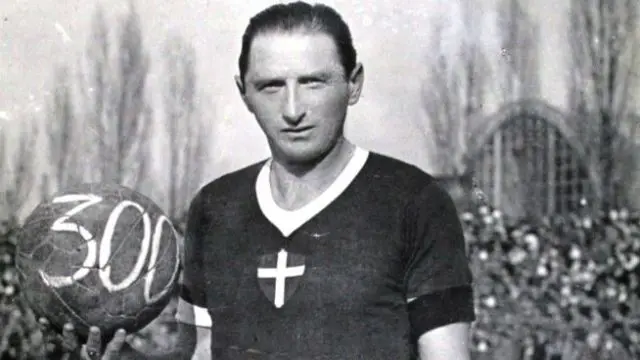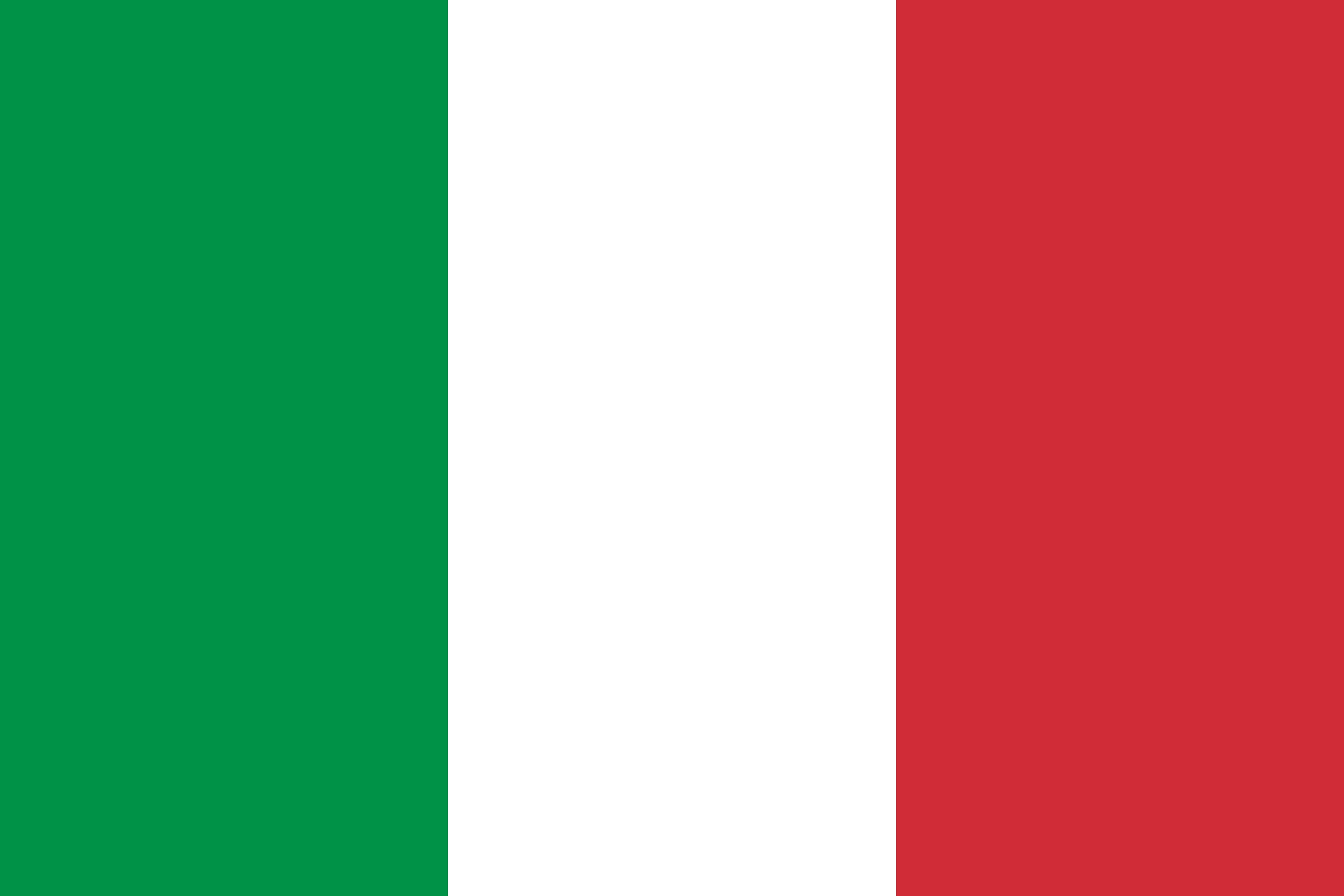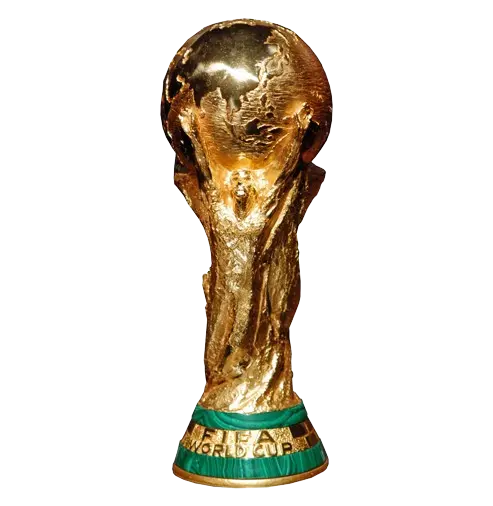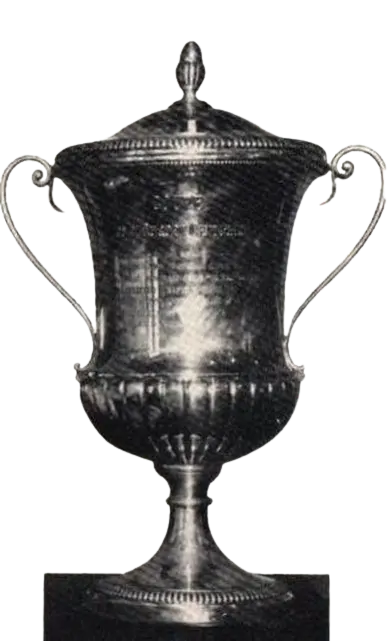Silvio Piola
Silvio Piola, "the striker with the golden feet" is the top scorer in the history of Serie A and one of the best strikers in the history of Italy and football in general.

Trophies
Goals
Games
1929/34 Pro Vercelli (ITA) 127 games, 51 goals
1934/43 Lazio Rome (ITA) 243 games, 159 goals
(Italian Championship: 227 games, 143 goals)
(Italian Cup: 10 games, 6 goals)
(Mitropa Cup: 6 games, 10 goals)
1943/44 Torino (ITA) 23 games, 27 goals
1944/47 Juventus Turin (ITA) 57 games, 26 goals
1947/54 Novara (ITA) 185 games, 86 goals
With the National Team :
34 caps, 30 goals
(Friendly matches: 24 caps, 18 goals)
(World Cup: 4 caps, 5 goals)
(International Cup: 6 caps, 7 goals)
1st cap: March 24, 1935 against Austria (2-0)
Last cap: May 18, 1952 against England (1-1)
B: 6 caps, 11 goals

Silvio Piola
Born September 29, 1913 in Robbio (ITA)
Died October 4, 1996 in Gattinara (ITA)
Italian, striker, second striker, 1m78
Nickname: the striker with golden feet
A family of footballers
Silvio Piola was born on September 29, 1913 in Robbio, a small town in Lombardy. "Piola" in Italian means tavern, and shows the player's modest origins, but of which he was very proud. The members of his family were fabric merchants who used to travel to northern Italy for professional reasons.
In the Piola family, football is important, this is also the case for Serafino Piola, his older brother, who is a good footballer but who will not have the right to glory because of vision problems, having to wear glasses. Silvio Piola will follow in his brother's footsteps, and start playing football.
It is said that Silvio was less technical than his brother, but much more skillful in front of the cages, a formidable finisher. And it was Pro Vercelli that would make the young boy debut at 16, from his first match, everyone understood the player's talent. On February 16, 1930, he made his debut in Serie A against Bologna, in a match ending 2-2. In the Pro Vercelli club, his cousin Paolino was in the first team, and his uncle, would be the substitute goalkeeper for Giampiero Combi during the 1934 World Cup: Giuseppe Cavanna.
A notable absentee from the 1934 Italian national team
While the president of Pro Vercelli saw in Silvio Piola the greatest striker the club would ever know, Lazio Rome would do everything to attract the player to the club. Negotiations would last several months, even years. And it was finally in 1934 that the final deal would take place.
His debut with Lazio would take place on September 30, when he had just celebrated his 21st birthday. From the start, it was perfection, a 6-1 victory against Livorno. In a team that finished 5th in the Italian championship, Silvio Piola finished 2nd top scorer in Serie A with 21 goals.
In 1934, he had not yet made his debut in the national team and therefore did not participate in the World Cup, in an Italian team full of Juventus players who completely dominated the championship at the time. He would make his debut in 1935, during a match against Austria won 2-0.
World Cup and period at Lazio Rome
During his years at Lazio Rome, the player continued to progress, as did his team. His best season at the club was the 1936/37 season, when he finished runner-up in Serie A behind Bologna. He also reached the final of the Mitropa Cup, which he lost, but individually, he finished for the first time as the top scorer in Serie A with 21 goals. And in the 1937 Mitropa Cup, he scored 11 goals in 6 games. He finished just behind György Sárosi and his 12 goals in the competition.
Initially reluctant, Pozzo would eventually integrate Silvio Piola into the Italian team, making him one of the team's main artists. Physically strong and a formidable finisher, he was the perfect complement to Giuseppe Meazza who could play a notch behind him, the two men formed a complementary and effective duo.
And so it was logical that he was called to participate in the 1938 World Cup, the competition then opened in the round of 16, against Norway, a 2-1 victory for Italy and already a goal from Piola in the competition which gave his country victory in the 94th minute. In the quarter-finals, he scored twice against the French team. In the semi-finals, he remained silent, but saw Giuseppe Meazza give his country the decisive advantage on a penalty.
The 1938 World Cup final saw Italy face György Sárosi's Hungary. Piola scored twice, with assists from Meazza and Biavati. Italy won 4-2 and Piola won his first trophy of his career.
His time at Lazio was individually spectacular even if he did not win any team trophies. In 243 games for the capital club, he scored 157 goals and established himself as one of the best players in the world. He ended his adventure there with a second title as top scorer in Serie A, again with 21 goals.
Great longevity of a great legend
Piola therefore left Lazio Rome to join Torino for a season in 1943/44 while the Second World War was raging in the country. Piola had an incredible season there, scoring 27 goals in 23 games. At the end of the war, he joined Juventus for 3 years. Still no title, but 26 goals in 57 games between the ages of 31 and 34.
In 1947, Piola agreed to play in Serie B. He was 34 and it seemed to everyone a wise choice, returning home before retiring from football. But with Piola, Novara would surprise everyone and immediately get his ticket to Serie A. He stayed at the club until 1954, the time to consolidate his title as top scorer in the history of Serie A with 274 goals in total.
Trophies :

World Cup x1
- 1938 (Italy)
International Cup x1
- 1933-35 (Italy)

Finalist Mitropa Cup x1
- 1937 (Lazio Rome)
Italian Second League x1
- 1948 (Novara)

Vice-Champion Serie A x3
- 1937 (Lazio Rome)
- 1946 (Juventus Turin)
- 1947 (Juventus Turin)
Individual Trophies :
- 2nd best player of the 1938 World Cup
- 2nd best scorer of the 1938 World Cup (5 goals)
- Top scorer of the Italian Championship in 1937 (21 goals) and 1943 (21 goals) (Lazio Rome)
- All-time top scorer of the Italian Championship (274 goals)
- Named in the team of the tournament of the 1938 World Cup
- Inducted into the Hall of Fame of Italian football in 2011
- Inducted into the "Walk of Fame" of Italian sport in 2015